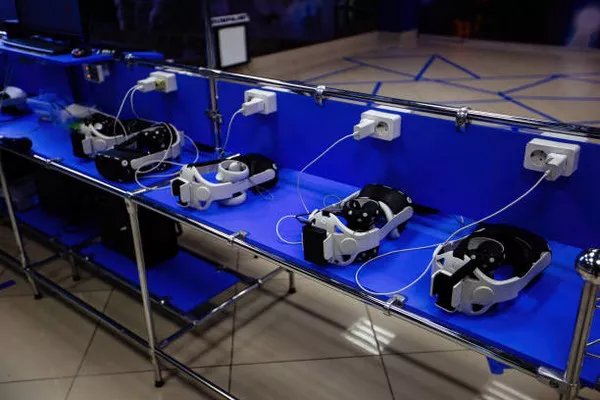Generators play a crucial role in providing backup power during emergencies or in off-grid locations. However, the duration for which a generator can run continuously depends on various factors, and understanding these factors is essential for optimal performance and longevity. In this article, we will delve into the key considerations that determine how long a generator can run and offer insights into best practices for maintaining and extending its operational lifespan.
Fuel Type and Capacity
One of the primary factors influencing a generator’s run time is the type of fuel it uses and its fuel capacity. Generators can be powered by gasoline, diesel, propane, or natural gas. Gasoline-powered generators typically have a smaller fuel tank compared to diesel generators, which can affect their run time.
Diesel generators, known for their fuel efficiency, often have longer run times per gallon of fuel. Additionally, they tend to be more robust and require less maintenance, making them a preferred choice for prolonged use. Propane and natural gas generators, while cleaner-burning options, may have lower energy density, leading to shorter run times. Therefore, selecting a generator with the appropriate fuel type and capacity for your specific needs is crucial in determining how long it can operate without refueling.
Load Capacity and Generator Size
The load capacity or power output of a generator, measured in kilowatts (kW) or megawatts (MW), is another critical factor affecting its run time. A generator operating at a higher load will consume more fuel and may have a shorter run time compared to the same generator running at a lower load.
Selecting the right generator size for your intended application is essential for both efficiency and longevity. If a generator is consistently operated at or near its maximum capacity, it can lead to increased wear and tear, reducing its overall lifespan. Conversely, a generator that operates at a lower load may have a longer run time and experience less strain, contributing to extended durability.
Cooling System Efficiency
The efficiency of a generator’s cooling system plays a vital role in determining how long it can run without overheating. Generators generate heat during operation, and if not properly cooled, the internal components can be damaged, leading to reduced performance and a shorter operational life.
Air-cooled and liquid-cooled generators are the two main types of cooling systems. Air-cooled generators are generally more compact and cost-effective but may have limitations in dissipating heat efficiently. Liquid-cooled generators, on the other hand, offer superior cooling performance, allowing for longer continuous operation. Regular maintenance of the cooling system, including cleaning air filters and checking coolant levels, is essential for optimal efficiency and extended generator life.
Environmental Conditions
The operating environment significantly influences a generator’s run time and overall performance. Temperature, humidity, and altitude can impact fuel combustion, engine efficiency, and cooling system effectiveness.
Generators may experience reduced performance in extreme temperatures, either too hot or too cold. In colder climates, generators may require additional warming measures to facilitate startup, while excessive heat can decrease overall efficiency. High-altitude locations can also affect combustion due to reduced oxygen levels.
It is crucial to consider the specific environmental conditions of the intended operation site and choose a generator that is designed to handle those conditions. Additionally, implementing proper maintenance and monitoring procedures to address environmental challenges can contribute to extended generator longevity.
Maintenance Practices
Regular maintenance is paramount in ensuring the longevity of a generator. Neglecting maintenance can lead to increased wear and the development of issues that may shorten the generator’s run time. Common maintenance tasks include changing oil, inspecting and replacing air filters, checking fuel quality, and monitoring coolant levels.
Oil changes are particularly critical, as clean oil contributes to smoother engine operation and reduced friction, thereby preventing premature wear. Regular inspection of components, such as spark plugs and belts, can identify potential issues before they escalate, ensuring the generator operates at its optimal capacity for an extended period.
Fuel Quality and Storage
The quality of the fuel used in a generator is a crucial factor in determining its performance and longevity. Stale or contaminated fuel can lead to clogged fuel filters, fuel system issues, and reduced combustion efficiency, ultimately affecting the generator’s run time.
To maintain optimal fuel quality, it is essential to use fuel stabilizers, especially if the generator is not used frequently. Regularly testing and treating stored fuel can prevent the formation of varnish and gum deposits that can adversely affect engine components.
See Also How Does A Thermoelectric Generator Work
Conclusion
In conclusion, the run time of a generator is influenced by various factors, including fuel type and capacity, load capacity, cooling system efficiency, environmental conditions, maintenance practices, and fuel quality. By understanding these factors and implementing best practices, users can optimize their generators’ performance and extend their operational lifespan.
When selecting a generator, it is crucial to carefully assess the specific requirements of the intended application and choose a model that aligns with those needs. Regular maintenance and monitoring, along with proper fuel management, are essential to ensure the generator operates reliably and efficiently for an extended duration. By considering these factors and implementing proactive measures, users can maximize the value of their generators and be well-prepared for any unforeseen power outages or off-grid scenarios.

